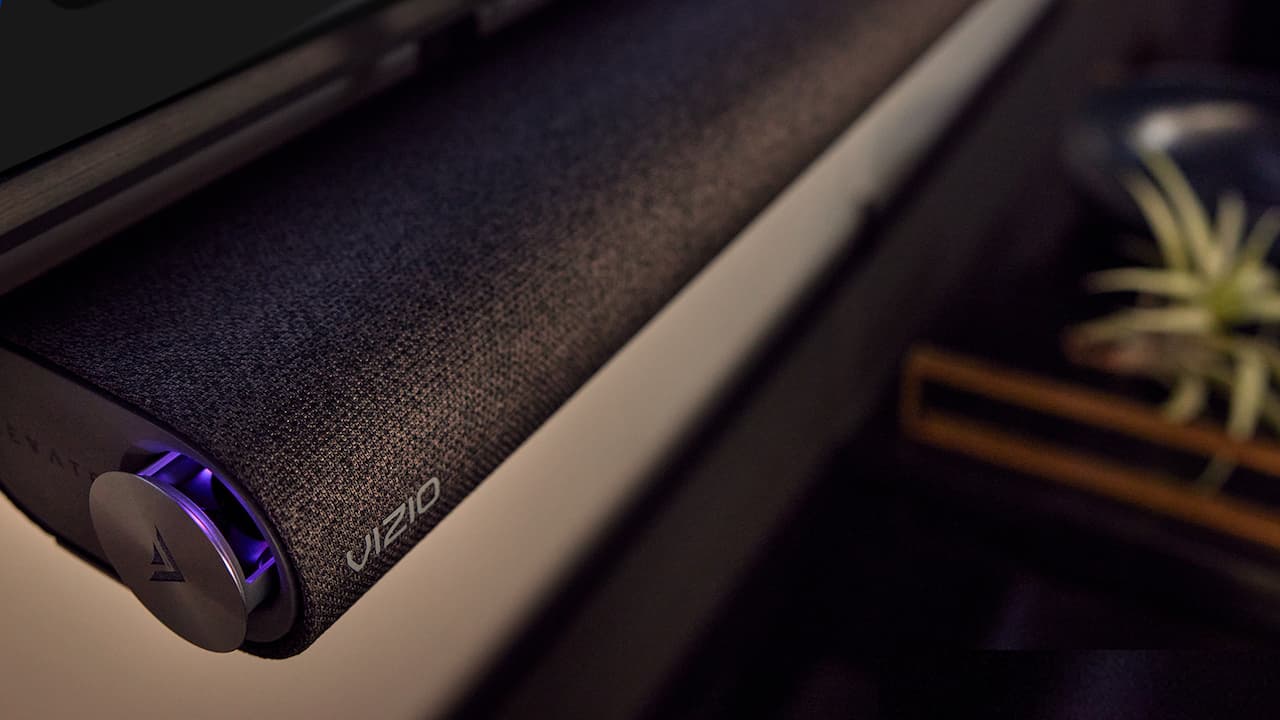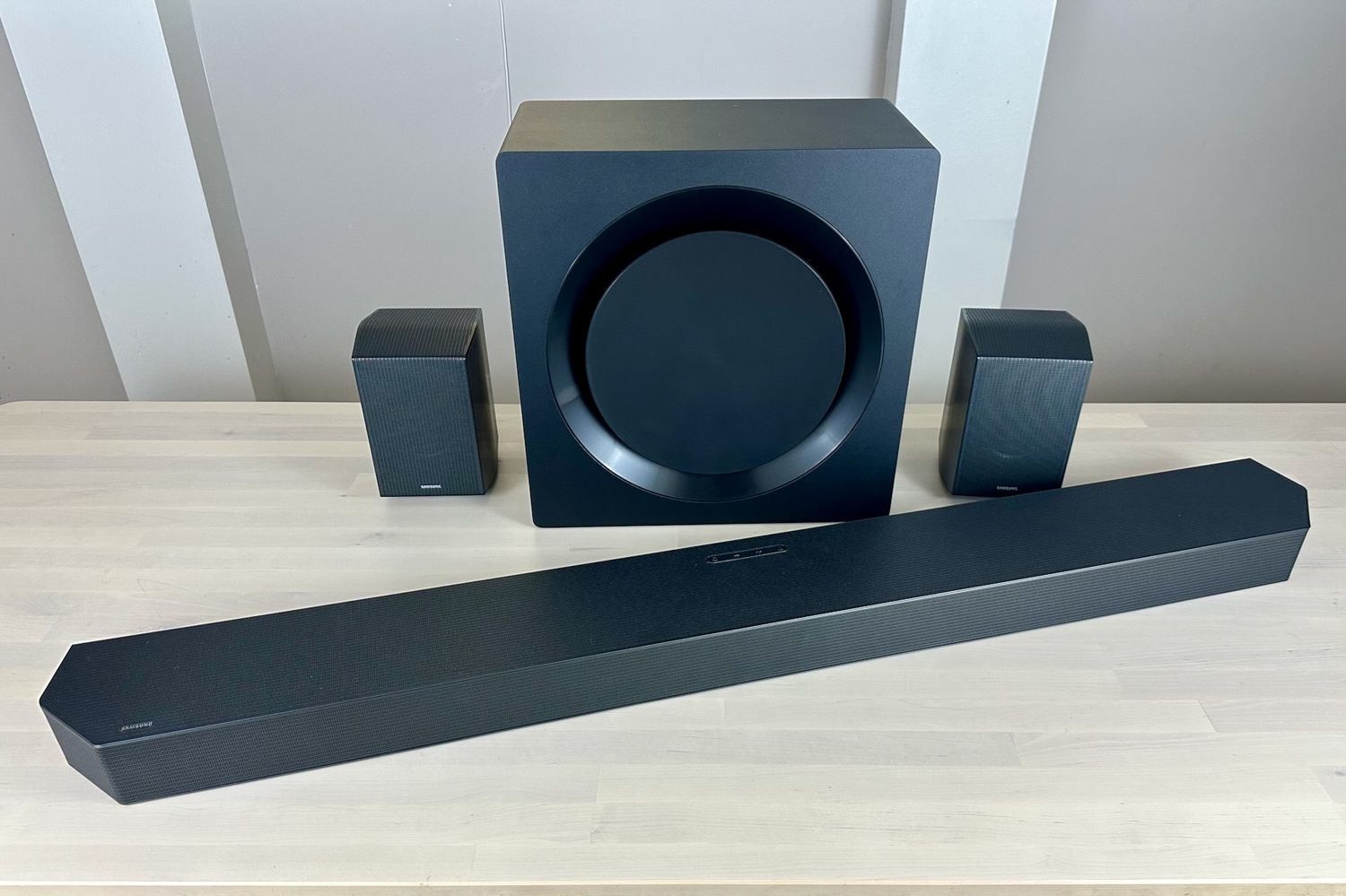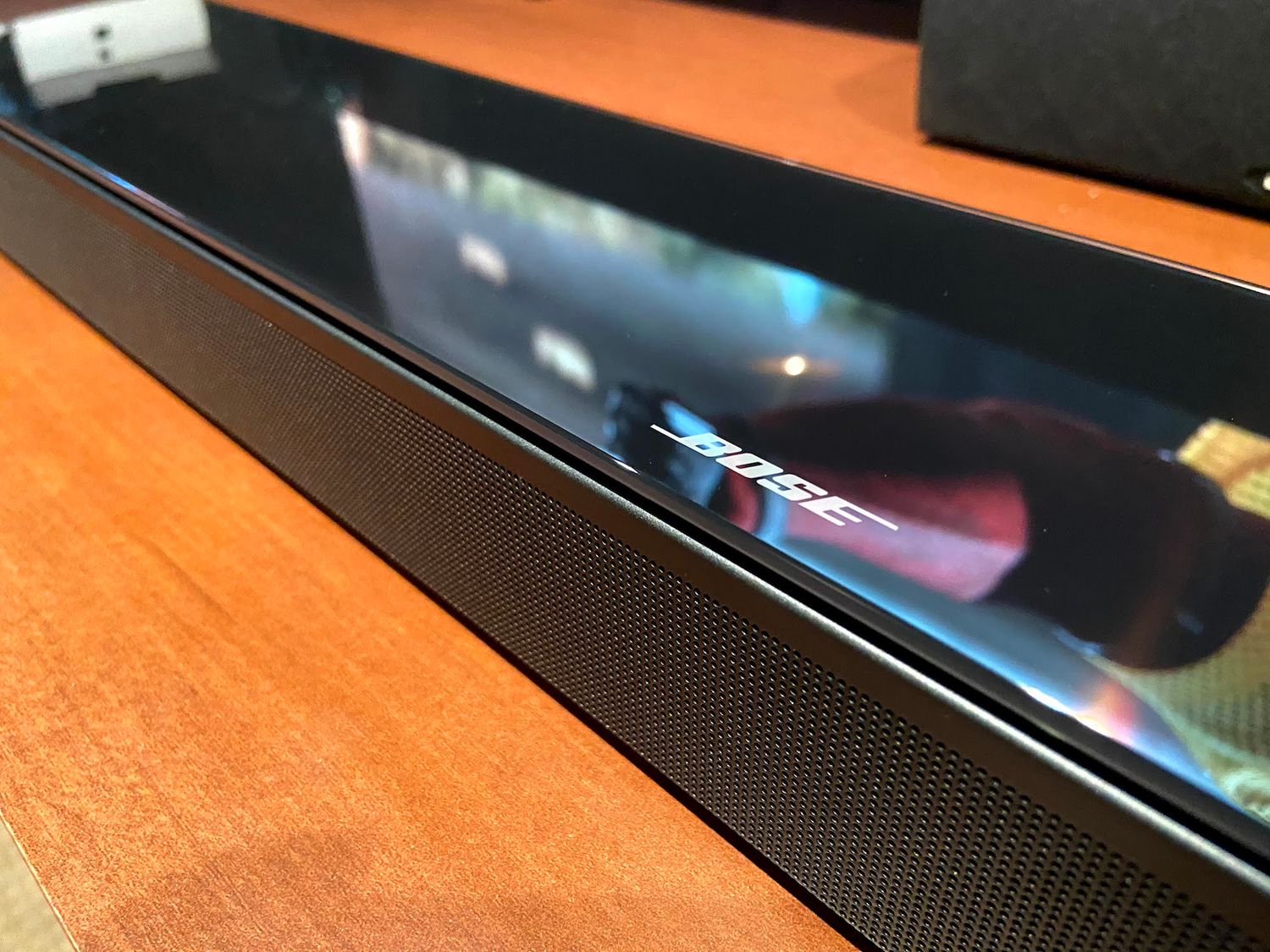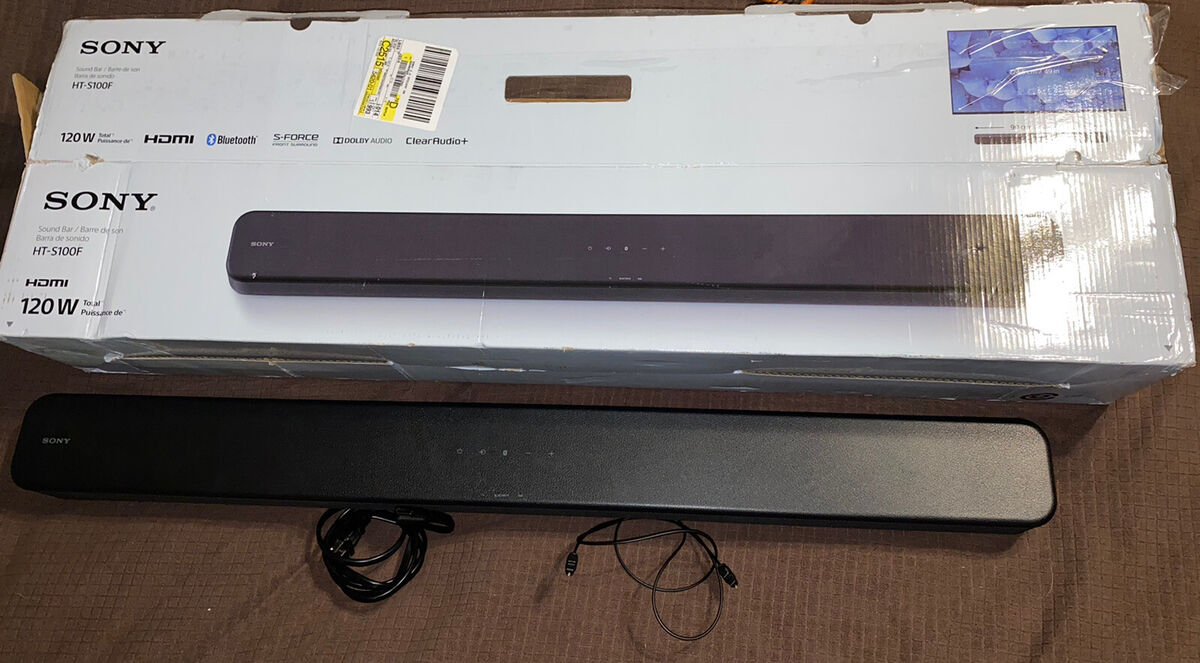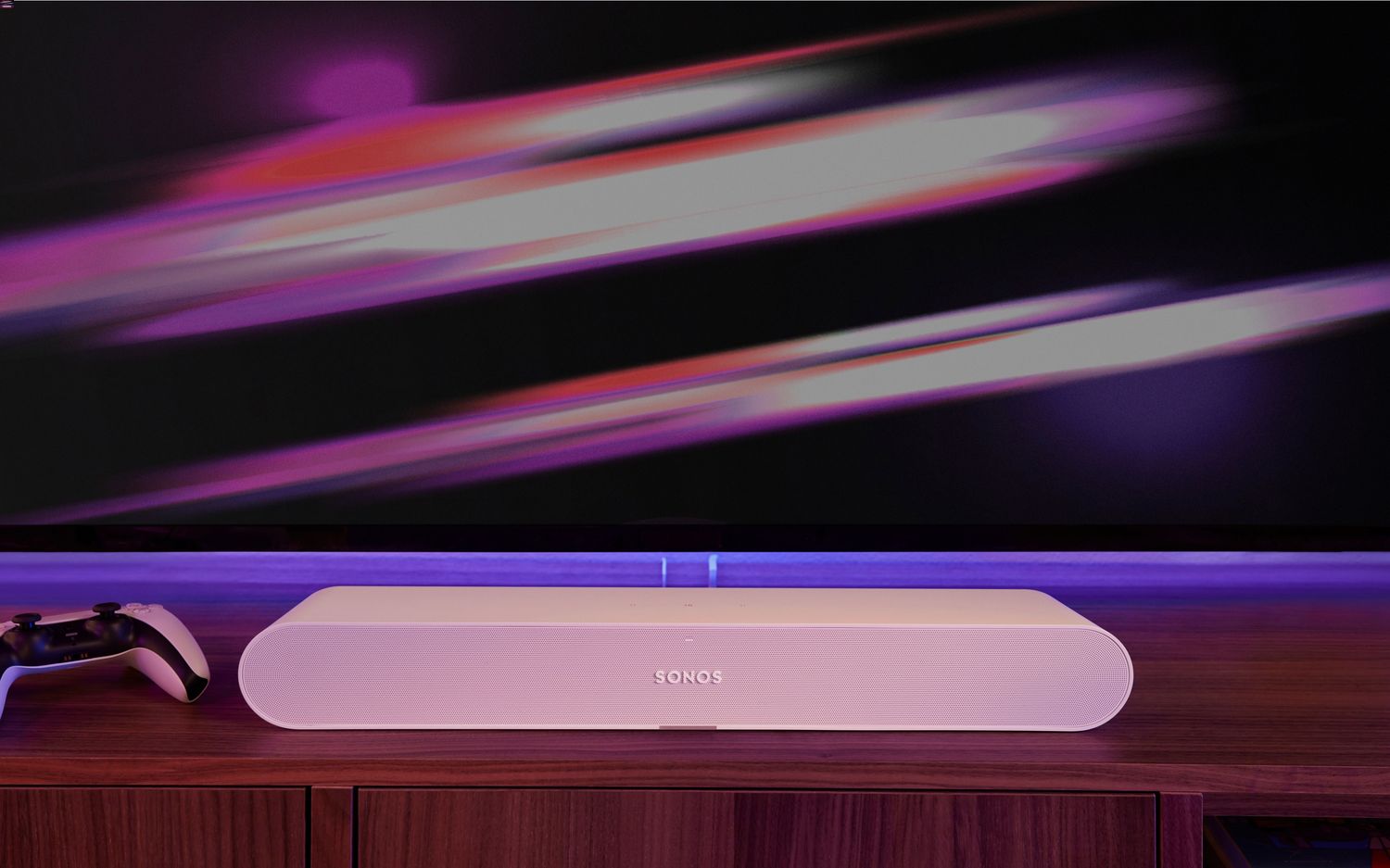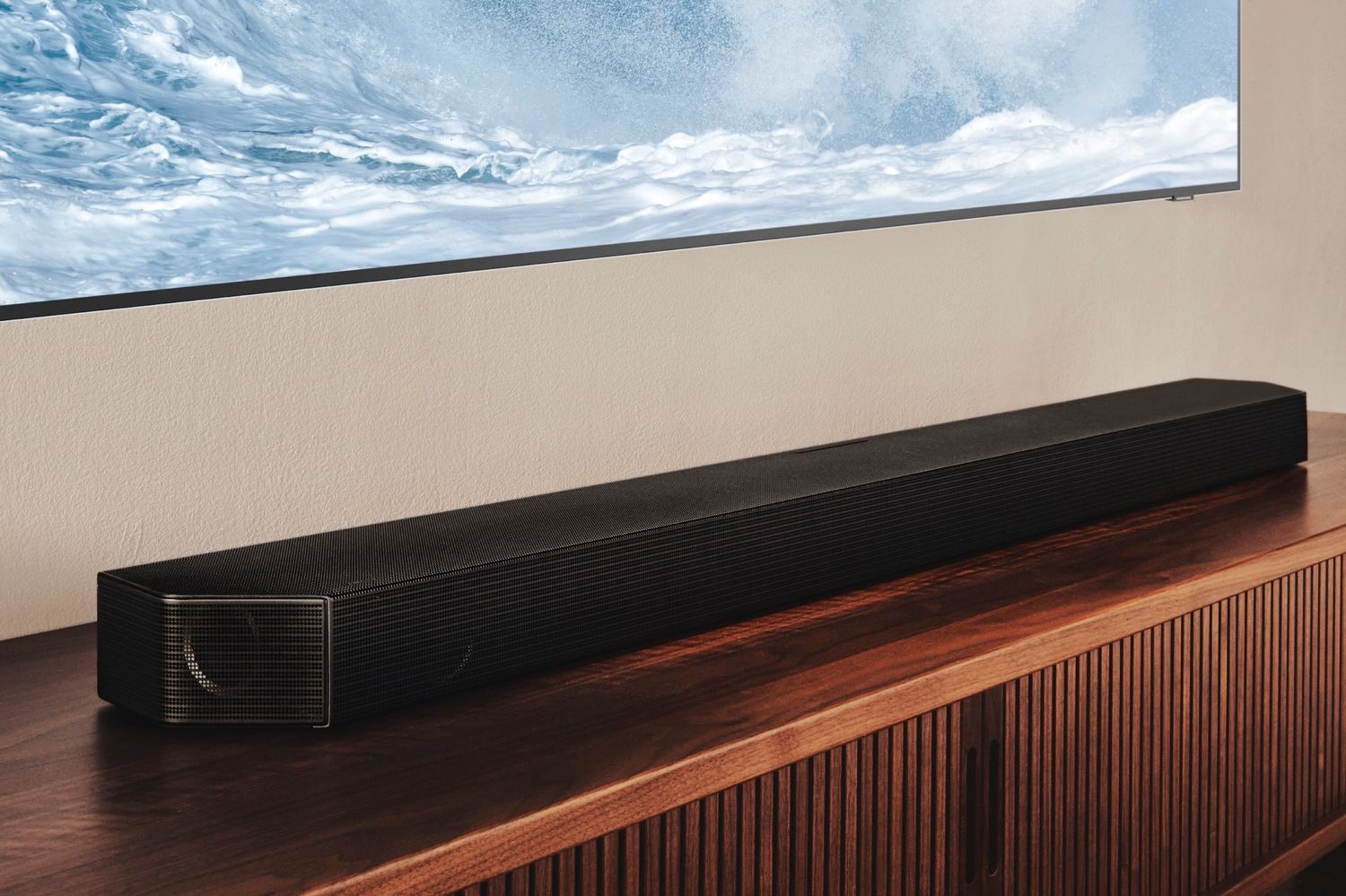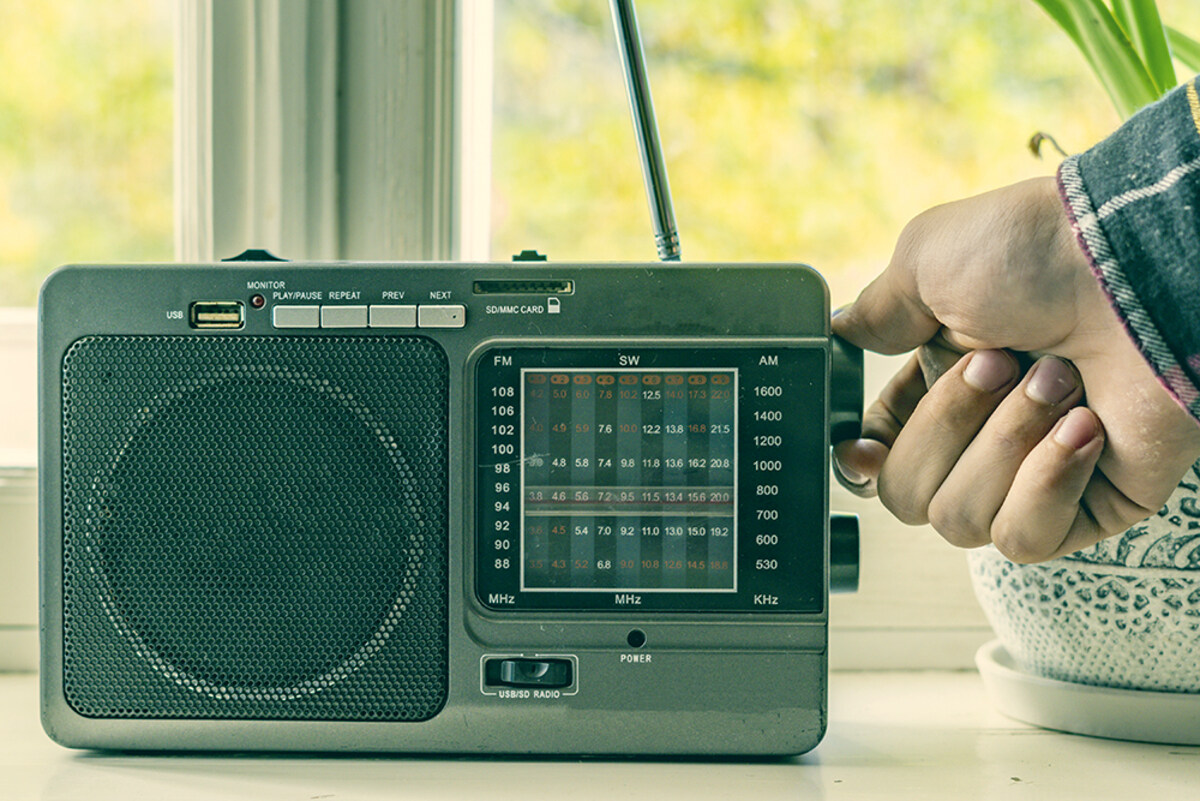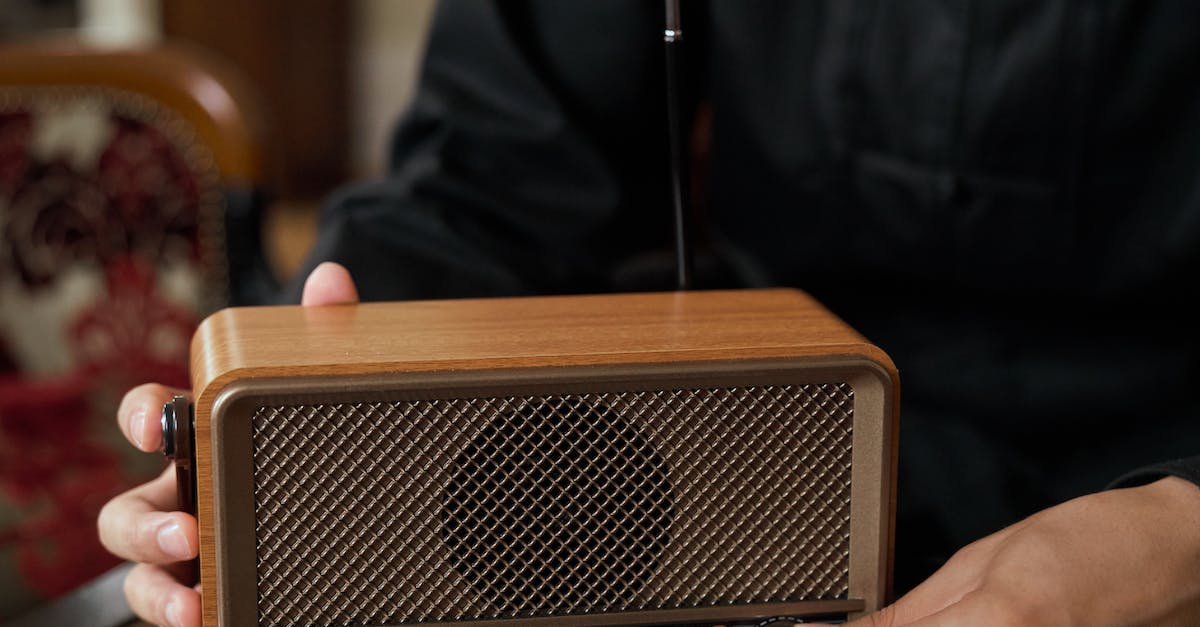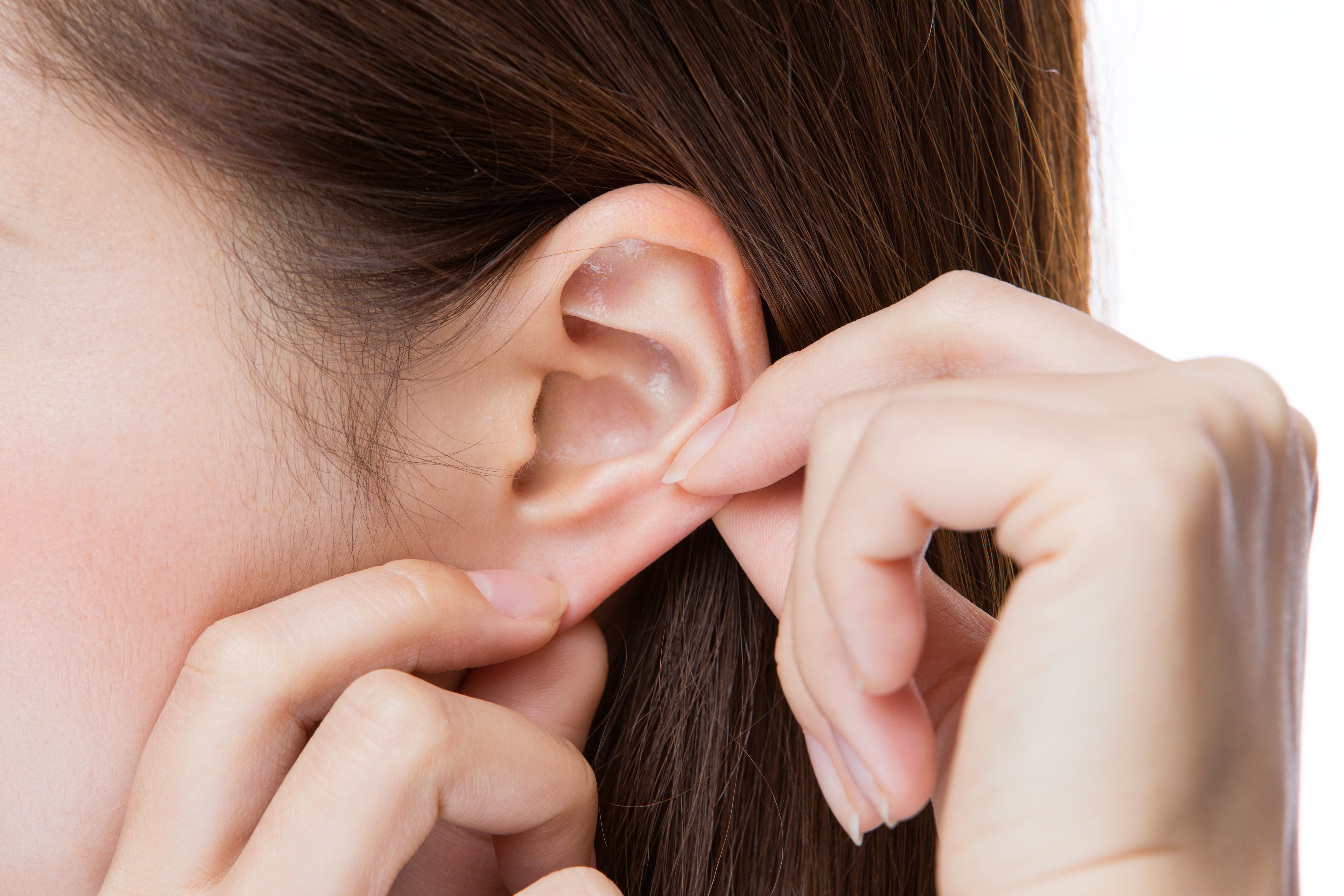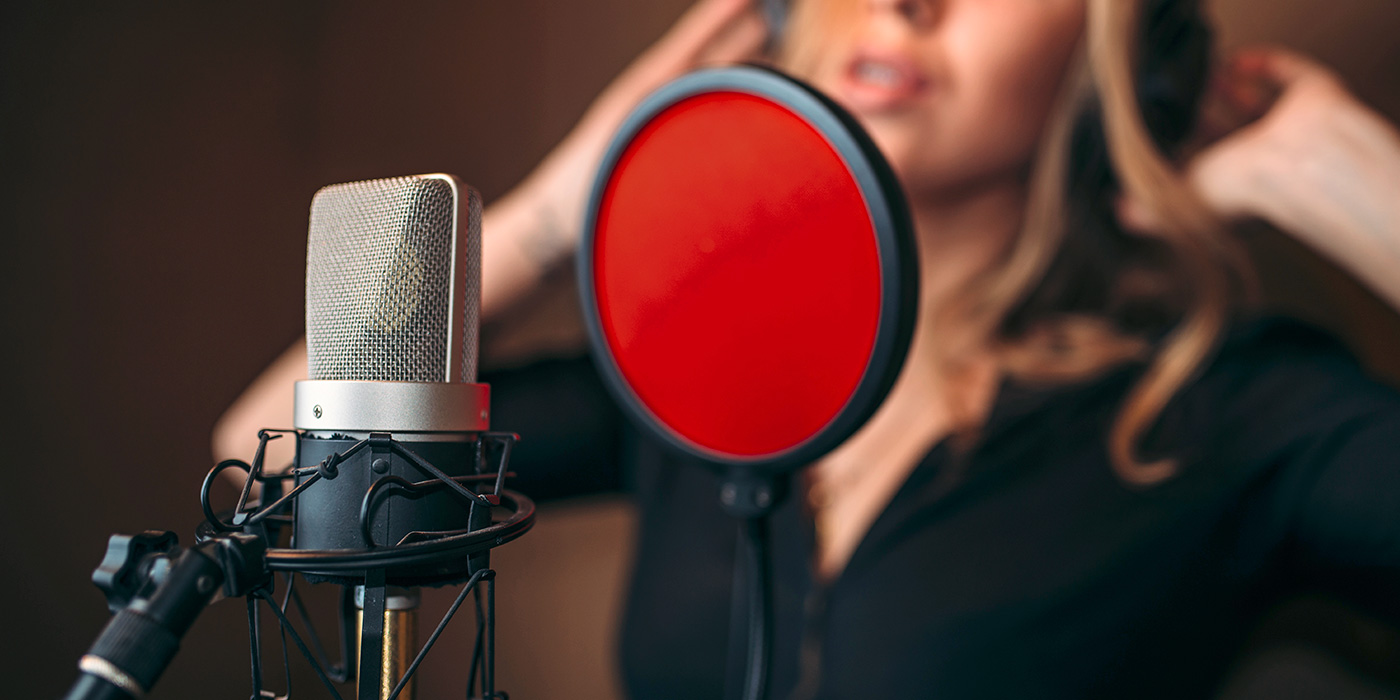Home>Production & Technology>Sound Bar>Why Does My Sound Bar Crackle
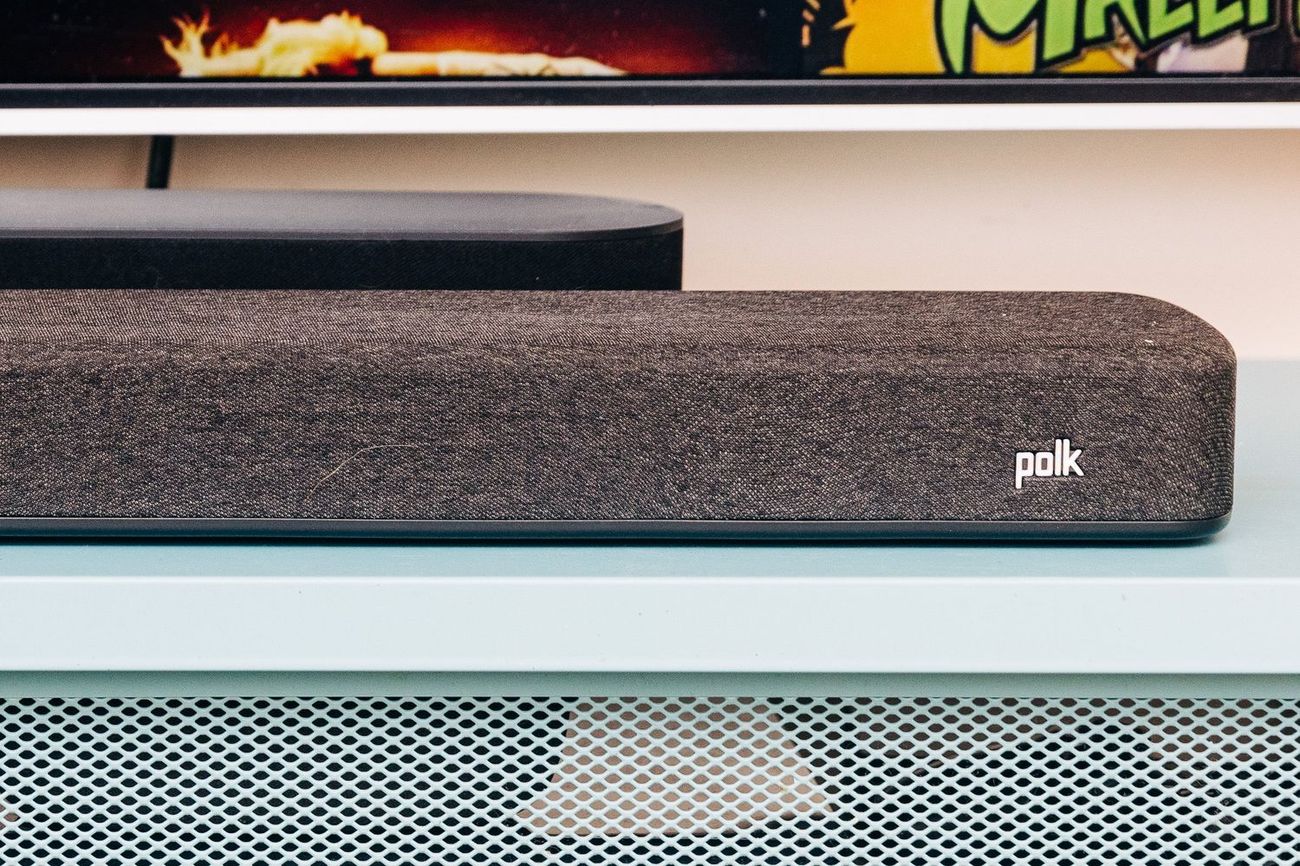

Sound Bar
Why Does My Sound Bar Crackle
Published: December 27, 2023
Experiencing crackling sound from your sound bar? Learn why sound bars crackle and how to fix the issue. Get clear and crisp audio with our troubleshooting tips.
(Many of the links in this article redirect to a specific reviewed product. Your purchase of these products through affiliate links helps to generate commission for AudioLover.com, at no extra cost. Learn more)
Table of Contents
- Introduction
- Common Causes of Sound Bar Crackle
- Loose Cables or Connections
- Electrical Interference
- Audio Format Compatibility Issues
- Overworked or Overheated Sound Bar
- Faulty or Aging Sound Bar Components
- Incorrect Sound Bar Settings
- Troubleshooting Steps to Fix Sound Bar Crackle
- Check and Secure Cables and Connections
- Minimize Electrical Interference
- Ensure Audio Format Compatibility
- Prevent Overworking and Overheating
- Identify and Replace Faulty Components
- Adjust Sound Bar Settings
- Conclusion
Introduction
Sound bars have become an increasingly popular choice for home audio systems due to their sleek design and impressive sound quality. However, one common issue that many sound bar owners encounter is crackling or distorted audio. This can be not only frustrating but also a major hindrance to enjoying your favorite movies, music, or TV shows.
But why does your sound bar crackle? Is there a way to fix this problem? In this article, we will explore the common causes of sound bar crackle and provide troubleshooting steps to help you resolve the issue.
Crackling sound from a sound bar can have various causes, ranging from loose cables to electrical interference or even faulty components. Understanding the underlying reasons can help you diagnose and fix the problem effectively. By following the troubleshooting steps outlined in this article, you can potentially eliminate the crackling sound and restore the audio quality of your sound bar.
Whether you are a sound bar enthusiast or a frustrated owner in need of a solution, this article will guide you through the possible causes and remedies for sound bar crackle. So, without further ado, let us dive into the world of sound bars and discover why they might be crackling!
Common Causes of Sound Bar Crackle
When it comes to troubleshooting sound bar crackle, it’s important to be aware of the common causes that can lead to this issue. Here are some potential culprits:
- Loose Cables or Connections: One of the most common causes of crackling sound from a sound bar is loose cables or connections. Make sure that all the cables are securely plugged into the right ports and that the connections are tight. A loose connection can cause interference and result in crackling or distorted audio.
- Electrical Interference: Another common cause of sound bar crackle is electrical interference. This can occur when the sound bar is placed too close to other electronic devices or power cords. The interference from these devices can disrupt the audio signal and lead to crackling or static noise. To resolve this, try moving the sound bar away from other electronic devices.
- Audio Format Compatibility Issues: Sound bars support different audio formats. If the audio format of the source content is not compatible with the sound bar, it can result in crackling or distorted sound. Ensure that the sound bar supports the audio format you are using and adjust the audio settings accordingly.
- Overworked or Overheated Sound Bar: If you have been using your sound bar for extended periods or at high volumes, it may become overworked or overheated. This can lead to crackling or distorted sound. Give your sound bar some time to cool down and reduce the volume to see if the issue persists.
- Faulty or Aging Sound Bar Components: Over time, certain components of your sound bar may wear out or become faulty. This can result in crackling or distorted audio. If other troubleshooting steps do not resolve the issue, it might be worth considering replacing the faulty components or seeking professional repair.
- Incorrect Sound Bar Settings: Sometimes, incorrect sound bar settings can cause crackling sound. Check the audio settings on both the sound bar and the audio source to ensure they are appropriately configured. Adjusting the equalizer settings or turning off any unnecessary sound enhancement features might help eliminate the crackling noise.
These are just some of the common causes of sound bar crackle. It’s important to identify the specific cause affecting your sound bar and take appropriate troubleshooting steps. In the next section, we will dive deeper into these troubleshooting steps to help you fix the crackling sound from your sound bar.
Loose Cables or Connections
One of the primary causes of crackling sound from a sound bar is loose cables or connections. If the cables are not properly secured or if the connections are loose, it can result in interference and disrupt the audio signal. Here are some steps to address this issue:
- Check all cable connections: Start by inspecting all the cable connections between your sound bar and the audio source. Make sure that the cables are firmly inserted into their respective ports on both the sound bar and the source device, such as your TV or gaming console.
- Tighten the connections: If you find any loose connections, gently but firmly tighten them. This will ensure a stable and secure connection, minimizing the chance of interference and crackling sound.
- Consider using high-quality cables: If you are using old or low-quality cables, they may not provide a reliable connection and could contribute to the crackling sound. Consider replacing them with high-quality, shielded cables that are specifically designed for audio purposes.
- Streamline cable management: Excessively tangled or messy cables can increase the likelihood of loose connections and interference. Take some time to organize and streamline your cable management. Use cable ties or clips to keep the cables neatly arranged and secured.
- Try different cables: In some cases, the cables themselves may be faulty or incompatible. If you have access to alternative cables, such as HDMI or optical cables, try using them to see if the crackling sound issue persists. This will help determine if the problem lies with the cables themselves.
By ensuring that all cables are securely connected and that there is no interference caused by loose connections, you can significantly reduce the chances of crackling sound from your sound bar. If this troubleshooting step does not resolve the issue, proceed to explore the other common causes and solutions outlined in this article.
Electrical Interference
Electrical interference is another common cause of crackling sound from a sound bar. When the sound bar is placed in close proximity to other electronic devices or power cords, it can pick up electromagnetic signals that interfere with the audio signal, resulting in crackling or static noise. Here are some steps to minimize electrical interference:
- Move the sound bar away from other electronic devices: If your sound bar is placed near other electronic devices such as a TV, gaming console, or Wi-Fi router, try moving it further away. Keeping a distance between the sound bar and other electronic devices can help reduce the chances of electromagnetic interference.
- Separate power cords from audio cables: Ensure that the power cord of the sound bar is not running parallel or in close proximity to the audio cables. Crossing paths with power cords can result in interference. Keep the power cords and audio cables separated or use cable management solutions to ensure they do not intertwine.
- Use shielded audio cables: Shielded audio cables are designed to minimize interference from external electromagnetic signals. Consider using shielded cables, such as HDMI or optical cables, to connect your sound bar to the audio source. These cables provide better protection against electrical interference, resulting in cleaner and clearer sound.
- Use a power conditioner: Power conditioners are devices that help regulate and clean the electrical power supply to your sound bar. They can filter out any electrical noise or interference before it reaches the sound bar, thereby reducing the chances of crackling sound. Consider using a power conditioner between your sound bar and the power outlet.
- Try different power outlets: In some cases, the power outlet itself may be the source of electrical interference. Try plugging your sound bar into a different power outlet to see if the crackling sound issue persists. Ideally, use a dedicated outlet for your sound bar to minimize the chances of interference.
By implementing these steps, you can minimize electrical interference and reduce the likelihood of crackling sound from your sound bar. However, if the issue persists, proceed to explore the other common causes and troubleshooting steps discussed in this article.
Audio Format Compatibility Issues
Sound bars support various audio formats, and when the audio format of the source content is not compatible with the sound bar, it can result in crackling or distorted sound. Here are some steps to address audio format compatibility issues:
- Check the audio format of the source: Determine the audio format of the content you are trying to play through your sound bar. This can usually be found in the audio settings of your TV, streaming device, or other audio source. Common audio formats include Dolby Digital, DTS, PCM, and stereo.
- Verify sound bar audio format support: Check the specifications of your sound bar to ensure that it supports the audio format used by your source. This information can usually be found in the sound bar’s user manual or on the manufacturer’s website. If the sound bar does not support the audio format, it may result in crackling or distorted sound.
- Adjust audio settings on the source: If your sound bar supports multiple audio formats but the issue persists, try adjusting the audio settings on the source device. For example, if you are using a streaming device, navigate to the audio settings and select a supported audio format that is compatible with your sound bar.
- Try a different audio connection: If you are experiencing audio format compatibility issues with a specific connection, such as HDMI, try using an alternative connection method, such as optical or RCA cables. Different audio connections may have different capabilities and may resolve the issue.
- Disable audio processing on the sound bar: In some cases, the sound bar’s audio processing settings can cause compatibility issues with certain audio formats. Try disabling any special audio processing features, such as virtual surround sound or sound enhancement modes, to see if it resolves the crackling sound problem.
By ensuring that the audio format of your source content is compatible with your sound bar and adjusting the audio settings accordingly, you can eliminate audio format compatibility issues and potentially resolve the crackling sound problem. If the issue persists, proceed to explore the other common causes and troubleshooting steps outlined in this article.
Overworked or Overheated Sound Bar
Using your sound bar for prolonged periods at high volumes can cause it to become overworked or overheated. This can lead to crackling or distorted sound. Here are some steps to prevent overworking and overheating of your sound bar:
- Take breaks and reduce the volume: If you tend to use your sound bar for extended periods or at high volumes, it’s important to give it periodic breaks to cool down. Lowering the volume can also help reduce the strain on the sound bar’s components and minimize the chances of crackling sound.
- Allow proper ventilation: Ensure that your sound bar has proper ventilation. Avoid placing it in an enclosed space or covering it with objects that can block airflow. Adequate airflow helps dissipate heat and keeps the sound bar operating within safe temperature ranges.
- Avoid obstructing the sound bar’s vents: Sound bars often have built-in vents that allow heat to escape. Make sure these vents are not blocked by any objects or obstacles. Clear away any dust or debris that may accumulate on the vents to ensure proper airflow.
- Consider using a cooling pad or fan: If you notice that your sound bar gets excessively hot during prolonged use, you may consider using a cooling pad or a small fan to help dissipate the heat. These accessories can provide additional airflow and help keep the sound bar within safe temperature limits.
- Avoid placing objects on top of the sound bar: Placing objects, such as books or other electronics, on top of the sound bar can obstruct ventilation and contribute to overheating. Keep the top surface of the sound bar clear and free from any obstructions.
By following these steps to prevent overworking and overheating, you can minimize the chances of crackling sound from your sound bar. However, if the issue persists, proceed to explore the other common causes and troubleshooting steps mentioned in this article.
Faulty or Aging Sound Bar Components
Over time, certain components of your sound bar may become faulty or deteriorate due to wear and tear. This can result in crackling or distorted audio. Here are some steps to identify and address faulty or aging sound bar components:
- Identify the problematic component: If you have tried the previous troubleshooting steps and the crackling sound issue still persists, it may indicate a faulty component within the sound bar. Try to pinpoint the specific component that may be causing the problem. This can include the speakers, amplifier, or even the wiring.
- Perform a visual inspection: Carefully examine the physical condition of your sound bar. Look for any visible signs of damage, such as frayed wires or distorted speaker cones. Additionally, check for any loose or disconnected internal connections that may be causing the issue.
- Consult the manufacturer’s manual: Refer to the sound bar’s user manual or visit the manufacturer’s website for troubleshooting information specific to your model. Sometimes, manufacturers provide self-diagnostic tools or recommended steps to address common hardware issues.
- Seek professional repair: If you are unable to identify or fix the faulty component yourself, it may be necessary to seek professional repair. Contact the manufacturer or a certified technician who specializes in sound bar repairs. They can diagnose the issue and replace the faulty component if needed.
- Consider replacing the sound bar: If your sound bar is old and has multiple failing components, it may be more cost-effective to replace it with a new one. Modern sound bars often come with improved technology and better audio performance. Research and choose a sound bar that suits your needs and budget.
By identifying and addressing faulty or aging components, you can eliminate the crackling sound issue in your sound bar. However, if the problem still persists after attempting these steps, it may be necessary to explore other troubleshooting methods or consult with a professional technician.
Incorrect Sound Bar Settings
Sometimes, crackling sound from a sound bar can be caused by incorrect settings. Adjusting the sound bar settings appropriately can help resolve this issue. Here are some steps to ensure the sound bar settings are optimized:
- Check the audio source settings: Ensure that the audio source, such as your TV or streaming device, is set to output audio correctly. Navigate to the audio settings of the source device and ensure that it is set to the appropriate audio output mode, such as PCM or Bitstream.
- Verify sound bar audio settings: Check the audio settings of your sound bar. This can typically be done through the sound bar’s remote control or menu interface. Ensure that the sound bar’s audio settings, such as the equalizer or audio enhancements, are properly configured for optimal sound quality. Try disabling any unnecessary audio enhancement features, as they may introduce distortion or crackling sound.
- Adjust the volume levels: Ensure that the volume levels of both the sound bar and the audio source are balanced. If the volume of the sound bar is set too high, it can cause distortion and crackling sound. Adjust the volume levels gradually until you find a balanced and clear sound.
- Experiment with different sound modes: Sound bars often offer different sound modes, such as movie, music, or gaming modes. Experiment with these different modes to find the one that best suits your audio content. Some sound modes may enhance certain frequencies and improve overall sound quality, while others may introduce distortion. Choose the mode that provides the clearest and most natural sound.
- Reset to factory settings: If you have made several changes to the sound bar settings and the crackling sound issue persists, consider resetting the sound bar to its factory default settings. Refer to the user manual or manufacturer’s website for instructions on performing a factory reset.
By ensuring that the sound bar settings are configured correctly and optimized for your audio content, you can mitigate the chances of crackling or distorted sound. If the issue persists after trying these steps, you may need to explore other potential causes or consult with the manufacturer for further assistance.
Troubleshooting Steps to Fix Sound Bar Crackle
Dealing with crackling sound from your sound bar can be frustrating, but there are several troubleshooting steps you can take to address the issue. Follow these steps to potentially fix and eliminate the crackling sound:
- Check and Secure Cables and Connections: Ensure that all cables and connections between the sound bar and the audio source are securely plugged in. Loose connections can cause interference and result in crackling sound. Consider using high-quality, shielded cables to minimize the chances of interference.
- Minimize Electrical Interference: Keep the sound bar away from other electronic devices, as their electromagnetic signals can interfere with the audio signal. Separate power cords from audio cables and consider using shielded audio cables. If necessary, use a power conditioner to filter out electrical noise.
- Ensure Audio Format Compatibility: Verify that the audio format of the source content is compatible with your sound bar. Adjust the audio settings on both the sound bar and the audio source to ensure they are configured correctly. Try different audio connections or disabling audio processing features if necessary.
- Prevent Overworking and Overheating: Avoid using your sound bar at high volumes for long periods. Lower the volume and give the sound bar breaks to cool down. Ensure proper ventilation and avoid obstructing the sound bar’s vents. Consider using a cooling pad or fan if necessary.
- Identify and Replace Faulty Components: If none of the previous steps fix the crackling sound issue, inspect the sound bar for any faulty or aging components. Consider consulting the manufacturer’s manual, seeking professional repair, or replacing the sound bar if needed.
- Adjust Sound Bar Settings: Double-check the audio settings on both the sound bar and the audio source. Make sure they are configured correctly and balanced. Experiment with different sound modes and consider resetting the sound bar to factory settings if necessary.
By following these troubleshooting steps, you can potentially fix the crackling sound from your sound bar and restore clear and enjoyable audio. However, if the issue persists, it may be necessary to seek further assistance from the manufacturer or consult with a professional technician.
Check and Secure Cables and Connections
One of the first and easiest troubleshooting steps to address crackling sound from a sound bar is to check and secure all cables and connections. Loose connections can result in interference and disrupt the audio signal, leading to crackling or distorted sound. Here’s what you can do:
- Inspect all cable connections: Take a close look at all the cables connecting your sound bar to the audio source, such as your TV or gaming console. Ensure that each cable is securely plugged into the correct port on both the sound bar and the source device.
- Tighten any loose connections: If you find any loose connections, gently but firmly tighten them. Loose cables can cause intermittent contact and introduce interference in the audio signal, resulting in crackling sound. Make sure all connections are snug and secure.
- Consider using high-quality cables: If you’re using old or low-quality cables, they may not provide a reliable connection and can contribute to crackling sound. Consider replacing them with high-quality, shielded cables that are specifically designed for audio purposes. These cables can help minimize interference and ensure a stable connection.
- Streamline cable management: Excessively tangled or messy cables can increase the chances of loose connections and interference. Take the time to organize and streamline your cable management. Use cable ties or clips to keep the cables neatly arranged and secured, reducing the risk of cable-related issues.
- Try different cables: In some cases, the cables themselves may be faulty or incompatible with your sound bar. If possible, try using alternative cables, such as HDMI or optical cables, to connect your sound bar to the audio source. This can help determine if the issue is related to the cables themselves.
By checking and securing cables and connections, you can minimize the chances of loose connections and interference that may cause crackling sound from your sound bar. Take the time to ensure all connections are tightened and use high-quality cables for a reliable and clear audio signal. If the crackling sound persists, proceed to explore the other troubleshooting steps outlined in this article.
Minimize Electrical Interference
Electrical interference is another common cause of crackling sound from a sound bar. Electronic devices and power cords emit electromagnetic signals that can interfere with the audio signal, resulting in crackling or static noise. Minimizing electrical interference can help resolve this issue. Here’s what you can do:
- Move the sound bar away from other electronic devices: If your sound bar is placed in close proximity to other electronic devices, such as a TV, gaming console, or Wi-Fi router, electromagnetic signals from these devices can interfere with the audio signal. Try to physically move the sound bar away from other electronics to reduce the chances of interference.
- Separate power cords from audio cables: Power cords and audio cables should not run parallel to each other or in close proximity. Crossing paths with power cords can introduce electrical interference. Make sure to separate the power cords from the audio cables and avoid routing them together.
- Use shielded audio cables: Shielded audio cables are designed to minimize interference from external electromagnetic signals. Consider using shielded cables, such as HDMI or optical cables, to connect your sound bar to the audio source. These cables provide better protection against electrical interference, resulting in cleaner and clearer sound.
- Use a power conditioner: Power conditioners are devices that regulate and clean the electrical power supply. They help filter out any electrical noise or interference before it reaches the sound bar. Consider using a power conditioner between your sound bar and the power outlet to minimize the chances of crackling sound caused by electrical interference.
- Try different power outlets: Occasionally, the power outlet itself may be the source of electrical interference. If possible, try plugging your sound bar into a different power outlet to see if the crackling sound issue improves. Choosing a dedicated outlet for your sound bar can minimize the chances of interference from other electrical devices.
By implementing these steps, you can minimize the effects of electrical interference and reduce the likelihood of crackling sound from your sound bar. Keeping the sound bar away from other electronic devices, separating power cords from audio cables, using shielded audio cables, and considering a power conditioner can all contribute to a cleaner and interference-free audio signal. If the crackling sound persists, proceed to explore the other troubleshooting steps outlined in this article.
Ensure Audio Format Compatibility
Sound bars support various audio formats, and when the audio format of the source content is not compatible with the sound bar, it can result in crackling or distorted sound. Ensuring audio format compatibility is crucial to achieving optimal audio quality. Here’s what you can do:
- Check the audio format of the source: Determine the audio format of the content you are trying to play through your sound bar. This information can usually be found in the audio settings of your TV, streaming device, or other audio source. Common audio formats include Dolby Digital, DTS, PCM, and stereo.
- Verify sound bar audio format support: Check the specifications of your sound bar to ensure that it supports the audio format used by your source. This information is typically available in the sound bar’s user manual or on the manufacturer’s website. If the sound bar does not support the audio format, it may result in crackling or distorted sound.
- Adjust audio settings on the source device: If your sound bar supports multiple audio formats but you are still experiencing crackling sound, navigate to the audio settings of the source device and ensure that it is set to output audio in a compatible format. For example, if your sound bar supports Dolby Digital but the source device is set to PCM, adjust the audio settings to match the supported format.
- Try a different audio connection: Sometimes, certain audio connections may have limitations in terms of audio format support. If you are experiencing audio format compatibility issues with a specific connection, such as HDMI or optical, try using a different type of connection. For example, if you’re currently using HDMI, switch to optical or vice versa. Different audio connections may have different capabilities and may resolve the issue.
- Disable audio processing on the sound bar: Certain sound bar features or audio processing settings may conflict with specific audio formats, leading to crackling or distorted sound. Try disabling any unnecessary audio processing features, such as virtual surround sound or sound enhancement modes, and see if it resolves the crackling sound issue. Enabling a “passthrough” mode may also help ensure direct compatibility between the source and the sound bar.
By ensuring that the audio format of your source content is compatible with your sound bar and making the necessary adjustments to the audio settings, you can eliminate audio format compatibility issues and potentially resolve the crackling sound problem. If the issue persists, proceed to explore the other troubleshooting steps outlined in this article.
Prevent Overworking and Overheating
Overworking and overheating can contribute to crackling sound from your sound bar. Prolonged usage at high volumes or inadequate ventilation can strain the sound bar’s components, leading to performance issues. Preventing overworking and overheating is essential for maintaining optimal sound quality. Here’s what you can do:
- Take breaks and reduce the volume: If you frequently use your sound bar for extended periods or at high volumes, it’s important to give it periodic breaks to cool down. Lowering the volume can also help reduce strain on the sound bar’s components and minimize the chances of crackling sound. Preventing prolonged, continuous usage can help prevent overheating issues.
- Ensure proper ventilation: Adequate ventilation is crucial for the proper function of the sound bar. Avoid placing it in enclosed spaces or stacking other objects on top of it, as this restricts airflow and can lead to overheating. Make sure the sound bar has sufficient space around it to allow for proper airflow and dissipation of heat.
- Avoid obstructing the sound bar’s vents: Sound bars typically have built-in vents or perforations designed to dissipate heat. Ensure that these vents are not blocked by any objects or obstructions. Clear away any dust or debris that may accumulate on the vents, as this can impede proper airflow and contribute to overheating.
- Consider using a cooling pad or fan: If you notice that your sound bar gets excessively hot during prolonged use, you may consider using a cooling pad or positioning a small fan nearby to help dissipate the heat. These accessories can provide additional airflow and assist in keeping the sound bar within safe temperature limits.
- Avoid placing objects on top of the sound bar: Placing objects on top of the sound bar can block airflow and trap heat, potentially leading to overheating. Avoid stacking items like books or other electronic devices on top of the sound bar. Keep the top surface of the sound bar clear and free from any obstructions.
By taking the necessary steps to prevent overworking and overheating, you can minimize the chances of crackling sound from your sound bar. Give your sound bar breaks, ensure proper ventilation, avoid obstructing vents, consider using cooling accessories, and keep the top surface free from obstructions. By doing so, you can help maintain optimal performance and audio quality. If the crackling sound persists, proceed to explore the other troubleshooting steps outlined in this article.
Identify and Replace Faulty Components
If you have gone through the previous troubleshooting steps and the crackling sound issue still persists, it may indicate a faulty component within your sound bar. Identifying and replacing the faulty components can help resolve the issue. Here’s what you can do:
- Inspect the sound bar for physical damage: Carefully examine the physical condition of your sound bar. Look for any visible signs of damage, such as frayed wires, dented speaker cones, or loose connections. Physical damage to components can affect the sound quality and lead to crackling sound. If you identify any visibly damaged parts, they may need to be repaired or replaced.
- Consult the manufacturer’s manual: Refer to the user manual or visit the manufacturer’s website for troubleshooting information specific to your sound bar model. Manufacturers often provide self-diagnostic tools or step-by-step instructions for identifying and addressing common hardware issues. Follow the recommended troubleshooting procedures provided by the manufacturer.
- Seek professional repair: If you are unable to identify or fix the faulty component yourself, it may be necessary to seek professional repair. Contact the manufacturer or reach out to a certified technician who specializes in sound bar repairs. They have the expertise and tools to diagnose the issue and replace the faulty component, if required.
- Consider replacing the sound bar: If your sound bar is old or has multiple failing components, it may be more cost-effective to replace it with a new one rather than repair individual parts. Newer sound bars often come with improved technology and better audio performance. Research and choose a sound bar that suits your needs and budget.
Identifying and replacing faulty components can eliminate the crackling sound issue in your sound bar. It’s important to inspect the sound bar for physical damage, consult the manufacturer’s manual for guidance, and consider seeking professional repair if needed. If repair costs are high or your sound bar is outdated, replacing it may be a more viable solution. Ensure you choose a sound bar that meets your audio requirements and offers reliable performance. By taking these steps, you can resolve the crackling sound issue and enjoy clear and uninterrupted audio from your sound bar.
Adjust Sound Bar Settings
Incorrect sound bar settings can also contribute to crackling sound. Adjusting the sound bar settings appropriately can help resolve the issue and improve the audio quality. Here’s what you can do:
- Check the audio settings on the sound bar: Use the sound bar’s remote control or menu interface to access the audio settings. Ensure that the settings are configured correctly for your audio source. Pay attention to settings such as volume levels, equalizer settings, and audio enhancement features.
- Balance the volume levels: Ensure that the sound bar’s volume level is appropriately set. If the volume is too high, it can cause distortion and lead to crackling sound. Adjust the volume gradually until you find a balanced level that provides clear sound without any distortion.
- Experiment with different sound modes: Many sound bars offer different sound modes, such as movie, music, or gaming modes. These modes enhance or optimize the audio settings for specific content types. Experiment with different sound modes to find the one that best enhances the audio quality and minimizes crackling sound.
- Disable unnecessary audio processing features: Some sound bars come with audio processing features like virtual surround sound, dialog enhancement, or sound spatialization. While these features can enhance the audio experience, they may also introduce distortion or interfere with the audio signal. Disable any unnecessary audio processing features and check if the crackling sound issue improves.
- Reset the sound bar to factory settings: If you have made multiple adjustments and still experience crackling sound, consider resetting the sound bar to its factory default settings. This can help revert any unintended changes and restore the sound bar’s original settings. Refer to the user manual or manufacturer’s instructions on how to perform a factory reset.
By adjusting the sound bar settings correctly, you can potentially resolve the crackling sound issue. Check the audio settings, balance the volume levels, experiment with sound modes, and disable unnecessary audio processing features if needed. Resetting the sound bar to factory settings can also help eliminate any unintended changes. Take the time to optimize the sound bar settings for your audio source, and ensure the best possible audio experience without any crackling sound. If the issue persists, consider exploring other troubleshooting steps or consulting with the manufacturer for further assistance.
Conclusion
Dealing with crackling sound from a sound bar can be frustrating, but by following the appropriate troubleshooting steps, you can potentially resolve the issue and restore clear and enjoyable audio. We explored the common causes of sound bar crackle, including loose cables, electrical interference, audio format compatibility issues, overworking and overheating, faulty components, and incorrect sound bar settings.
To troubleshoot sound bar crackle, start by checking and securing all cables and connections. Minimize electrical interference by keeping the sound bar away from other electronic devices, using shielded audio cables, and considering a power conditioner. Ensure audio format compatibility by checking the settings on both the sound bar and the audio source. Prevent overworking and overheating by taking breaks, ensuring proper ventilation, and avoiding obstructions. If the crackling sound persists, inspect the sound bar for faulty components and consider professional repair or replacement if necessary. Finally, adjust the sound bar settings, including volume levels, sound modes, and disabling unnecessary audio processing features.
By taking these troubleshooting steps, you can potentially identify and resolve the root cause of the crackling sound, allowing you to enjoy high-quality audio from your sound bar once again. However, if the problem persists or if you are unsure about performing any troubleshooting steps, it is recommended to consult the manufacturer’s guidelines or seek assistance from a professional technician.
Remember, each sound bar model may have unique features and potential issues. Always refer to the specific user manual or manufacturer’s instructions for the most accurate troubleshooting steps for your sound bar. With patience and persistence, you can overcome the crackling sound issue and continue to enjoy immersive audio experiences with your sound bar.

